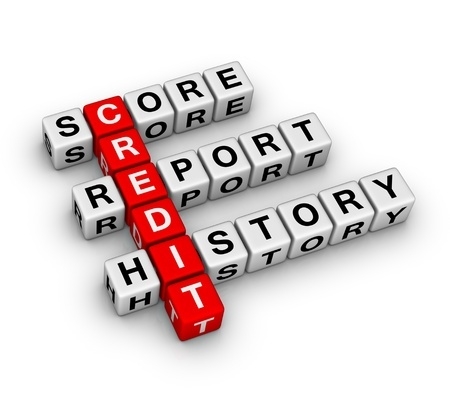By Amy Miller, AFC®

So now that we’ve all pulled our credit report, reviewed it, and understand what is in it, what should you do if your score is not where you want it to be?
Knowing how to build good credit can be confusing and sometimes downright mind-boggling so I put together a few ideas on things you can do to improve your score.
Credit Builder Loan
This is my favorite and what I always recommend first! It is basically borrowing your own money and doesn’t require traditional underwriting which focuses on your credit history and score for approval – just the fact that you are putting up your own money. (I like to say it’s you having some skin in the game) It will report as a secured installment loan. Most financial institutions that offer them will require that you put your own money into a savings account that they will hold as collateral. The dollar amount held decreases as you make payments, freeing up that same amount in the savings account and making it available to you. Typically, the interest rates are low on this loan so it’s a great way to improve your report and score with little cost.
Secured Credit Cards
This is basically a starter credit card that is also backed by a deposit account. So again, you will use your own money to build your payment history. I suggest starting with a low limit, only making small purchases, and setting up auto payments.
Become an Authorized User
You can become an authorized user on someone else’s credit card to help improve your score and build your credit file. Their payments and balances will appear on your report. I have seen parents do this with their children to build their credit and this can work to get a higher score, but as a lender, I (like most) never consider an authorized user account or the pay history on it when making a decision on a loan since it’s not actually your debt and you are not responsible for the payments. But as I said earlier, this can help you increase your credit score and qualify for lower interest rates in the future (which saves you money). Be cautious about the account you are added to – their late payments will appear on your report as well.
Experian Boost
There’s a lot of talk about “boosting” your score by utilizing Experian’s Credit Boost service that pulls in information on rent, phone, utilities, and streaming payments from your checking account (you must grant access) and adds them to your Experian credit file (doesn’t affect Equifax or Transunion). It will report positive payment information from the past 90 days or newer only so late payments won’t affect it. The service is designed to help individuals with limited or “thin” files (those who have little credit history) qualify for loans they would otherwise be denied and help them qualify for lower interest rates. This can help an individual when applying for a loan but could also prompt the lender to add those payments to your overall debt to income ratio, which may then put you over the limits to qualify for the loan. Some lenders will require that you remove the “boost” to avoid the debt, but then you risk your score dropping, which could then also disqualify you. It’s a gamble so I only recommend using it after doing your homework and talking to your lender. Knowing their policies will help you decide if a boost is right for you.
Rent Reporting Services
Rent reporting services can get your payments reported on your credit report if your landlord participates and pays for the service, which on average is around $100 per year. However, some of these services may not report to all 3 bureaus and not all bureaus will include those reported payments when calculating your score so get all the facts before signing up.
Correcting Errors
Mistakes on your report can be pulling your score down more than you think. The process can take some time so you should dispute any errors you find immediately. The credit bureau has 30 days to investigate and respond once they receive your notification. Each credit bureau has a process, check out their websites for more information.
Collections
Paying old collections will impact your score positively, more so if you can negotiate with the company to stop reporting them once they are paid in full. You may also be able to have old collection accounts removed by disputing them with the credit bureau. This process could also take a few months so get started right away.
I tell everyone that there is no quick and easy fix to rebuilding or repairing credit – no magic wand that can be waived that will make it extraordinarily better overnight (or even in a month or two). These tips are a just a few things you can do to get on the path to a healthy credit file and hope you find them helpful!